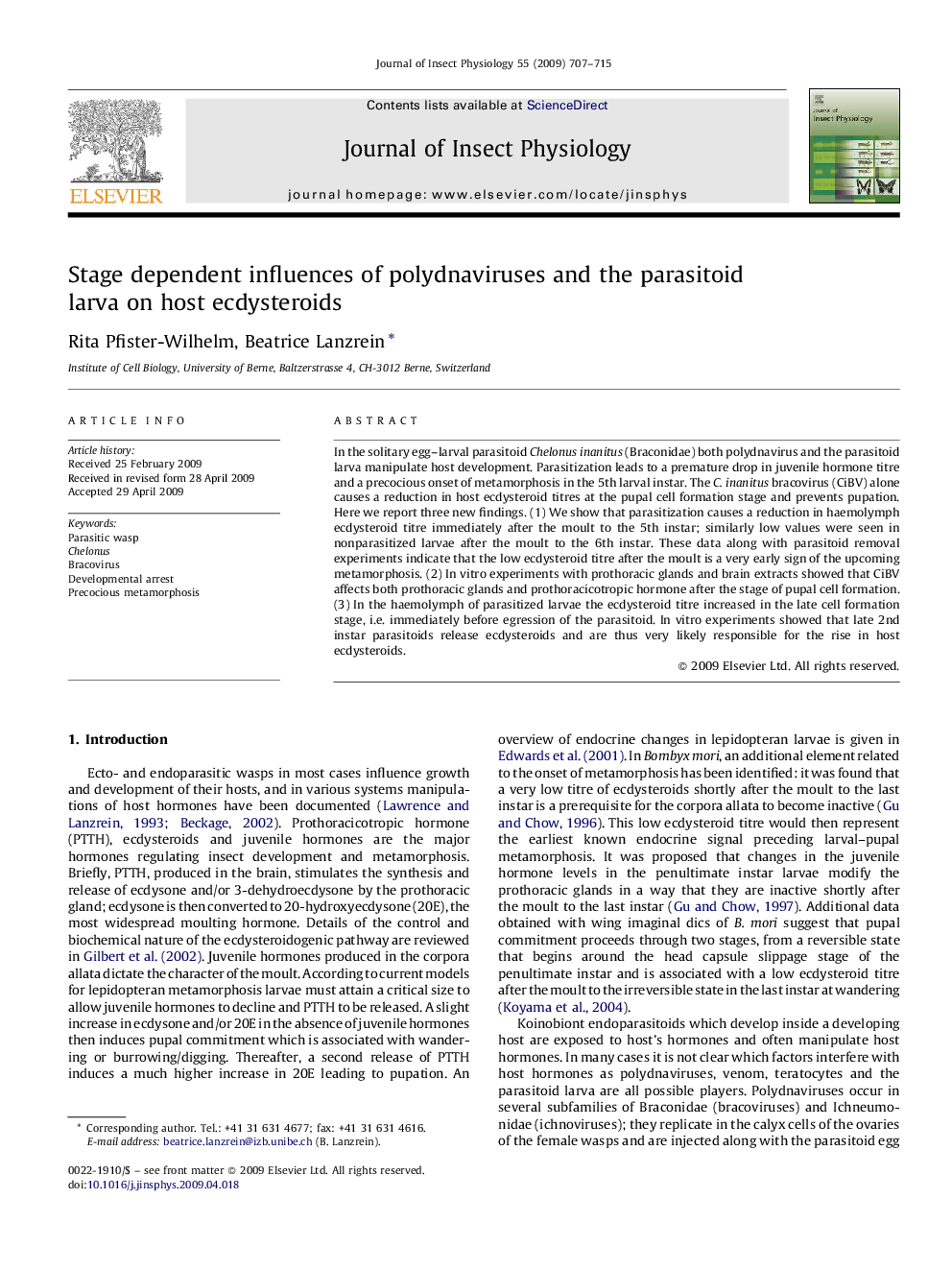| Article ID | Journal | Published Year | Pages | File Type |
|---|---|---|---|---|
| 2841107 | Journal of Insect Physiology | 2009 | 9 Pages |
Abstract
In the solitary egg-larval parasitoid Chelonus inanitus (Braconidae) both polydnavirus and the parasitoid larva manipulate host development. Parasitization leads to a premature drop in juvenile hormone titre and a precocious onset of metamorphosis in the 5th larval instar. The C. inanitus bracovirus (CiBV) alone causes a reduction in host ecdysteroid titres at the pupal cell formation stage and prevents pupation. Here we report three new findings. (1) We show that parasitization causes a reduction in haemolymph ecdysteroid titre immediately after the moult to the 5th instar; similarly low values were seen in nonparasitized larvae after the moult to the 6th instar. These data along with parasitoid removal experiments indicate that the low ecdysteroid titre after the moult is a very early sign of the upcoming metamorphosis. (2) In vitro experiments with prothoracic glands and brain extracts showed that CiBV affects both prothoracic glands and prothoracicotropic hormone after the stage of pupal cell formation. (3) In the haemolymph of parasitized larvae the ecdysteroid titre increased in the late cell formation stage, i.e. immediately before egression of the parasitoid. In vitro experiments showed that late 2nd instar parasitoids release ecdysteroids and are thus very likely responsible for the rise in host ecdysteroids.
Related Topics
Life Sciences
Agricultural and Biological Sciences
Insect Science
Authors
Rita Pfister-Wilhelm, Beatrice Lanzrein,
